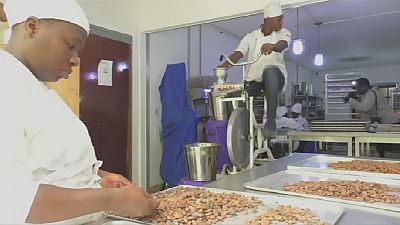Use the words "bicycle" and "sculpture" together and, for many people, two things will come to mind: Marcel Duchamp's "Bicycle Wheel" and Pablo Picasso's "Bull's Head," made from handlebars and a saddle.
There are many other lesser-known bicycle-based sculptures all over the world. Some are in public places. Unfortunately, securing and maintaining them isn't a high priority in most places. Even if municipal officials don't appreciate bicycles, bicycling or even art, they should be sensitive to what the work means to its creator--and for at least some members of the public.
I was reminded about that after Wes Cackler's "The Race" disappeared from it spot in a Palm Coast, Florida shopping mall. Now I've learned that another sculpture "Greeley Sweethearts", lost its wheels. Whether they were taken by the wind or a thief, no one seems to know. But now the artist, Amos Robinson of San Diego, has sent replacement wheels to the city of Greeley, Colorado. According to city staff members, the wheels will be installed when weather permits.
And the "couple" will once again "enjoy" their "ride" in Josephine Jones Park.
There are many other lesser-known bicycle-based sculptures all over the world. Some are in public places. Unfortunately, securing and maintaining them isn't a high priority in most places. Even if municipal officials don't appreciate bicycles, bicycling or even art, they should be sensitive to what the work means to its creator--and for at least some members of the public.
 |
| Greeley Sweethearts |
I was reminded about that after Wes Cackler's "The Race" disappeared from it spot in a Palm Coast, Florida shopping mall. Now I've learned that another sculpture "Greeley Sweethearts", lost its wheels. Whether they were taken by the wind or a thief, no one seems to know. But now the artist, Amos Robinson of San Diego, has sent replacement wheels to the city of Greeley, Colorado. According to city staff members, the wheels will be installed when weather permits.
And the "couple" will once again "enjoy" their "ride" in Josephine Jones Park.


